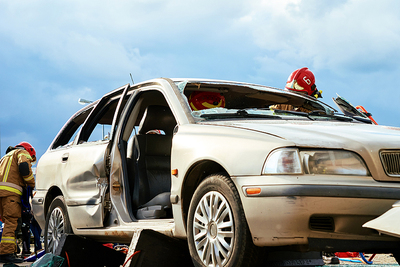Common Types of Car Accident Injuries and Their Legal Implications
Whether you're a seasoned driver or a newcomer to the road, understanding the potential injuries from car accidents and their legal implications can be crucial. Accidents can happen in the blink of an eye, and knowing what to expect can make all the difference in how you handle the aftermath. Let's dive into the world of car accident injuries and explore what they mean for you legally.
Introduction to Car Accident Injuries and Legal Implications
Did you know that the aftermath of a car accident extends beyond just repairing your vehicle? Navigating the maze of physical injuries, emotional distress, and legal obligations can feel overwhelming. But fear not! By understanding the common types of injuries and their legal implications, you can be better prepared to face these challenges head-on. If you find yourself in this situation, consulting with a car accident lawyer can provide valuable guidance and support throughout the process.
Common Physical Injuries in Car Accidents
Car accidents can lead to a variety of physical injuries, ranging from minor to severe. Here are some common ones you might encounter:
• Whiplash: Often caused by rear-end collisions, this neck injury can be painful and persistent.
• Broken Bones: Fractures are common, especially in the arms, legs, and ribs.
• Head Injuries: Concussions and traumatic brain injuries can have long-lasting effects.
• Cuts and Lacerations: Flying debris or impact with the vehicle interior can cause significant cuts.
• Back Injuries: Sprains, strains, and herniated discs are frequent outcomes.
Each of these injuries requires careful medical attention, and understanding their severity is key to managing their legal implications.
Psychological and Internal Injuries
Physical injuries aren't the only concern after a car accident. Psychological and internal injuries can also take a toll:
• Emotional Distress: Anxiety, depression, and PTSD can develop after traumatic accidents.
• Organ Damage: Internal injuries may not be immediately apparent but can be life-threatening.
• Internal Bleeding: This requires immediate medical intervention and can have serious consequences.
These injuries often necessitate specialized medical and psychological care, which can impact your legal case and compensation.
Legal Considerations for Car Accident Injuries
Navigating the legal landscape after a car accident can be daunting. Here are some key legal considerations:
• Liability: Determining who is at fault can affect your ability to claim compensation.
• Insurance Claims: Understanding your insurance policy is crucial for navigating claims.
• Statute of Limitations: Be aware of the time limits for filing claims in your state.
• Compensation: You may be entitled to compensation for medical expenses, lost wages, and more.
These legal elements can significantly influence the outcome of your case, so it's vital to approach them with a clear understanding.
Importance of Medical Documentation and Legal Representation
Why is documentation so important? Simply put, thorough medical records and legal representation can bolster your claim. Here's how:
• Medical Records: Detailed documentation of your injuries and treatment is essential for proving your case.
• Legal Representation: An experienced attorney can help navigate the complexities of your case and negotiate with insurance companies.
Having these elements in place can significantly increase your chances of a favorable outcome.
Your Next Steps Following a Car Crash
In the wake of a car accident, knowing what to do next can feel overwhelming. Here's a quick roadmap to guide you:
1. Seek Medical Attention: Prioritize your health with immediate medical care.
2. Document Everything: Keep records of medical visits and expenses.
3. Consult an Attorney: Seek legal advice to understand your rights.
By taking these steps, you can ensure that you're well-prepared to handle the aftermath of an accident, both physically and legally. Remember, you're not alone in this journey, and there are resources available to help you every step of the way.



